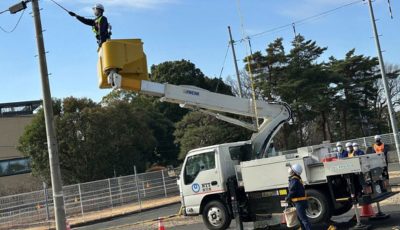Is there a difference?
Is there a difference between political status desires of Guam residents and political self-determination aspirations of the Chamorro people of Guam? The Guam print media have not seriously addressed this question.
The Guam media have lumped together political status plebiscite matters, which are more mechanical and process oriented with bias toward the United States and Chamorro self-determination into one frame, and have failed to adequately explain the similarities and differences to the public.
This is a major shortcoming and there are opportunities to improve and expand this public conversation.
The issue of Chamorro self-determination is premised on the need to right historical wrongs or at least give voice to the past injustices experienced by islanders who were residents of Guam in 1950 and successive generations, when the Organic Act of Guam was unilaterally passed by Congress.
This issue has never been fully resolved to the satisfaction of the Chamorro people on a systemic basis.
Chamorro self-determination is, at its fundamental level, the desire for islanders to produce for themselves governmental structures that best fit the unique characteristics and circumstances of the largest Pacific Island in Micronesia. True political self-determination will codify and institutionalize the harmonization between our ancient Chamorro culture, our historical social system traditions and ancient linguistic and seafaring traditions that pre-date anything American, but may also include the best of American political traditions that have not been realized on the island.
Fundamentally, Chamorro self-determination is about human rights justice and attainment, nothing more and nothing less, for an ancient Pacific island people who have been living on a relatively remote and isolated landmass of 210 square miles located in the vast expanse of the western Pacific Ocean area.
A broader discussion would help the community better understand the complexities of this matter and here is a short list of questions intended to grow the conversation:
1. Are the known options available to address past human rights violations really focused on human rights considerations and if not, why not?
2. Is the current Guam media discussion on Chamorro self-determination and a political status plebiscite truthful to all the complexities of how islanders have experienced American governmental control over the past 11 decades?
3. How do islanders properly account for non-islanders who have moved to Guam and raised families and contributed to the overall welfare of this American colony, knowing that full political human rights attainment has been suppressed?
4. How do non-islanders think about human rights violations of the Chamorro people from past American governmental actions and inactions?
5. How have people coming from Asia and the United States to Guam assisted or prejudiced the basic fundamental discussions tied to human rights violations of islanders?
6. Have islanders engaged in constructive ways to address the issue of political self-determination and how complete has the collective conversation been?
7. Have both islanders and Guam residents been partly to blame for the lack of a complete and uncomfortable discussion on what constitutes political self-determination and political status voting matters?
8. How will these topics be discussed in light of the further militarization of Guam, which is fundamentally an undemocratic policy decision series made by the federal regime?
9. What can the U.S. government learn from its past mistakes in Guam and what, if anything, can be done to bring about systemic relief and remedy to islanders to fully enable basic human rights through political self-determination to be attained?
The Pacific Island of Guam is 210 square miles, but the location of where this 210 square mile island is located is considered priceless to the American national security communities for a host of reasons.
Will real democracy for islanders ever be attained under American control and governance?
Rick Perez
via email



























